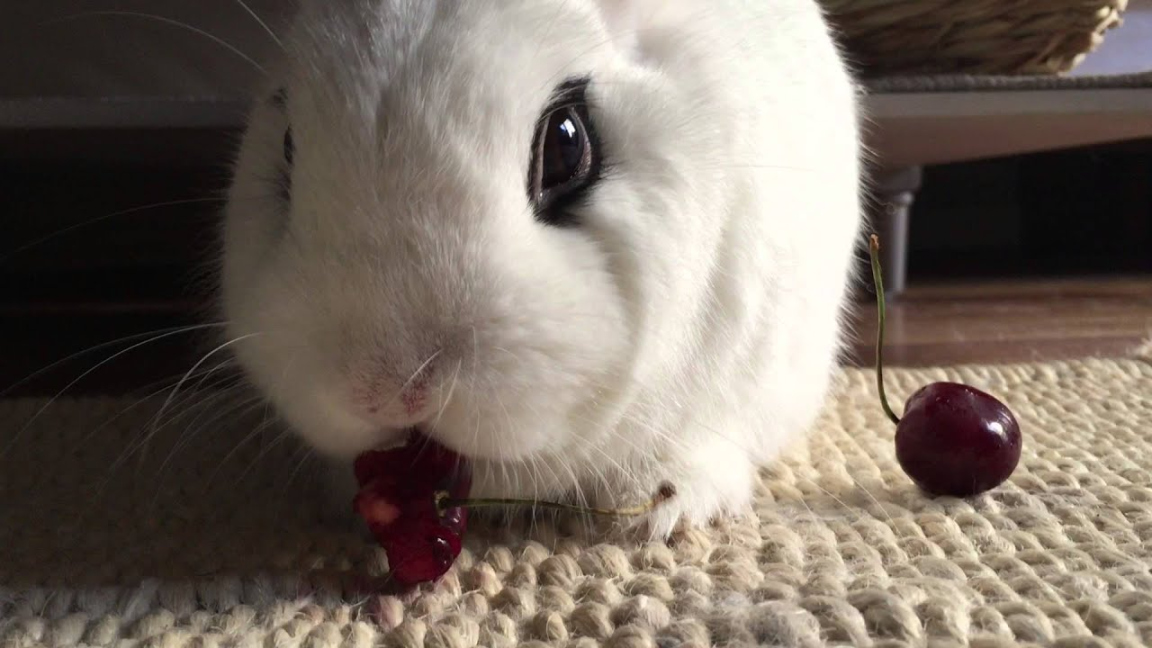Can Rabbits Have Cherries?
Rabbits are known for their love of carrots, but what about cherries? Cherries are a sweet and delicious fruit that many humans enjoy, but can rabbits have cherries too? In this article, we will explore whether or not cherries are safe for rabbits to consume and the potential risks associated with feeding them to our furry friends.

Can Rabbits Eat Cherries?
Rabbits have a delicate digestive system that is designed to process high-fiber foods like hay and leafy greens. While cherries are not toxic to rabbits, they are not an ideal food choice for them either.
Nutritional Value of Cherries
Cherries are a good source of vitamins and minerals, including vitamin C and potassium. They also contain antioxidants, which can help protect against cell damage. However, cherries are high in sugar and should only be consumed in moderation, even for humans.
Potential Risks
Feeding cherries to rabbits can pose several potential risks:
- Upset stomach: Rabbits have sensitive digestive systems, and the high sugar content in cherries can cause digestive upset, leading to diarrhea or bloating.
- Obesity: Cherries are relatively high in calories compared to other rabbit-friendly foods. Overfeeding cherries can lead to weight gain and obesity in rabbits.
- Pits and leaves: The pits and leaves of cherries contain cyanide, which is toxic to rabbits. It is crucial to remove all pits and stems before offering cherries to your rabbit.
Safe Alternatives
While cherries should be limited in a rabbit’s diet, there are several safe alternatives that can provide similar nutritional benefits:
- Leafy greens: Rabbits thrive on a diet rich in leafy greens such as kale, spinach, and romaine lettuce. These provide essential vitamins and minerals without the risk of digestive upset.
- Berries: Instead of cherries, you can offer your rabbit small amounts of other berries like strawberries or blueberries. These fruits are lower in sugar compared to cherries.
- Herbs: Fresh herbs like parsley, cilantro, and dill can be a great addition to a rabbit’s diet. They are low in calories and provide extra flavor and variety.
Remember, it is always best to consult with a veterinarian before introducing any new food into your rabbit’s diet.
FAQs
1. Can rabbits eat cherry pits?
No, rabbits should never eat cherry pits or any fruit pits. Cherry pits contain cyanide, which is toxic to rabbits. Always remove the pits before offering cherries to your rabbit.
2. Can rabbits eat cherry leaves?
No, rabbits should not eat cherry leaves. The leaves contain cyanide, which is harmful to rabbits. Make sure to remove all stems and leaves before giving cherries to your rabbit.
3. How many cherries can I give my rabbit?
Cherries should only be given to rabbits as an occasional treat. Limit the amount to a small piece or one or two cherries per serving. Too many cherries can lead to digestive upset and weight gain.
4. Are frozen cherries safe for rabbits?
While frozen cherries are not toxic to rabbits, they can be a choking hazard if given whole. If you want to offer frozen cherries as a treat, make sure to thaw them and cut them into small, bite-sized pieces before feeding them to your rabbit.
While cherries are not toxic to rabbits, they are not an essential part of their diet. The high sugar content and potential risks associated with pits and leaves make cherries a less ideal choice for rabbits. It is always best to stick to a diet primarily consisting of hay, leafy greens, and rabbit pellets. If you want to offer your rabbit a fruity treat, opt for safer options like berries in moderation. Remember to consult with a veterinarian before introducing any new food into your rabbit’s diet to ensure their health and well-being.
Related Articles…
Copyright Notice:
The images displayed here are sourced from the internet, with copyrights held by respective owners. For removal of any copyrighted image, please email us.